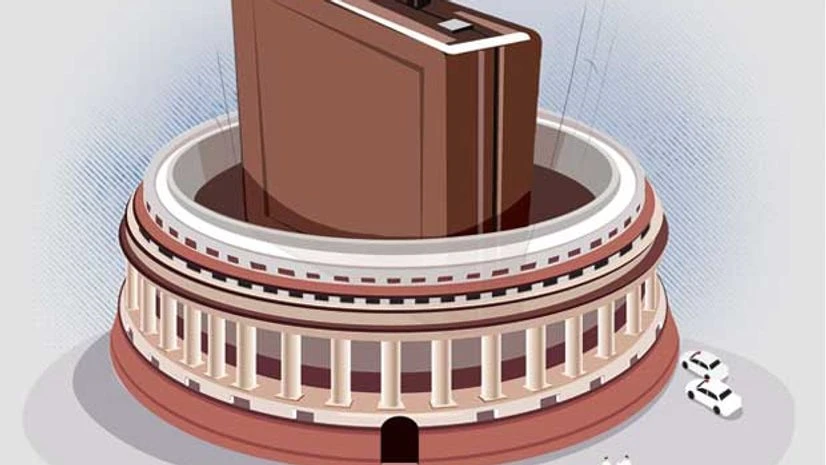Also Read: Uttarakhand crisis likely to derail Parliament
Read more from our special coverage on "PARLIAMENT"
With these key events behind us, all eyes are now the second-half of Parliament's Budget session that resumes on Monday. While the government is hopeful that it can ensure the passage of the Insolvency and Bankruptcy Code during the current session of Parliament, the stand-off on the Goods and Services Tax (GST) Constitution Amendment Bill is likely to continue.
Also Read: Chances of a smooth run are remote: Jairam Ramesh
So how are markets likely to react to the developments? Are they in for a sharp correction in case the Parliament fails to transact any meaningful business?
"The markets are expecting smooth passage of the Finance Bill with all the required changes - be it EPF (employees' provident fund) related, pictorial warnings on tobacco / cigarette packs or the jewellery sector where the government had imposed an excise duty. The markets will be eyeing the amendments, (if any), related to these three issues. That apart, the passage of Bankruptcy Bill is something that the markets will be eying. I am very doubtful that there will be any meaningful business," said Tirthankar Patnaik, India Strategist at Japan-based Mizuho Bank.
Also Read: But earnings may spook markets again, data suggest
"I think the road ahead for the markets will be results-driven rather than anything else. From a global standpoint, the upcoming monetary policy reviews by the US Federal Reserve (US Fed) and the Bank of Japan (BoJ) are likely to be non-events for the markets. For the markets, quarterly results remain key and I expect the Nifty to remain in a range of 7,700 - 8,000 in the short-term," he adds.
Also Read: In Q4, revenue cheer and profit woes
Besides the stuck Goods and Services Tax (GST) Bill and the Insolvency and Bankruptcy Code, there are several key bills pending for approval in the Lok Sabha that include Factories (Amendment) Bill, Companies (Amendment) Bill, Consumer Protection Bill; and Mines and Minerals (Development and Regulation) Amendment Bill, Land Bill in the Rajya Sabha.
G. Chokkalingam, founder & managing director, Equinomics Research & Advisory suggests that the Parliament session could turn out to be a non-event for the markets since the Narendra Modi led National Democratic Alliance (NDA) does not have the requisite numbers in the Rajya Sabha to get key bills, like the GST, passed.
More From This Section
State elections
Despite the on-going State elections and its outcome, experts say that the results alone cannot meaningfully change the government's ability to push through reforms. Over the rest of this year, only six seats from these states are up for re-election in the Rajya Sabha, where the government aims to increase its influence.
Also Read: Rains alone won't help; India needs reforms
"Over the rest of 2016, significantly, 56 out of 245 members will be up for re-election. This is important because the BJP lacks a majority in the upper house. A change in the balance of power could help the BJP push through long-delayed pieces of legislation, such as the goods and services tax (GST) bill, that are regarded as important parts of the reform process," points out Pranjul Bhandari, chief India economist at HSBC in a recent report.

)
